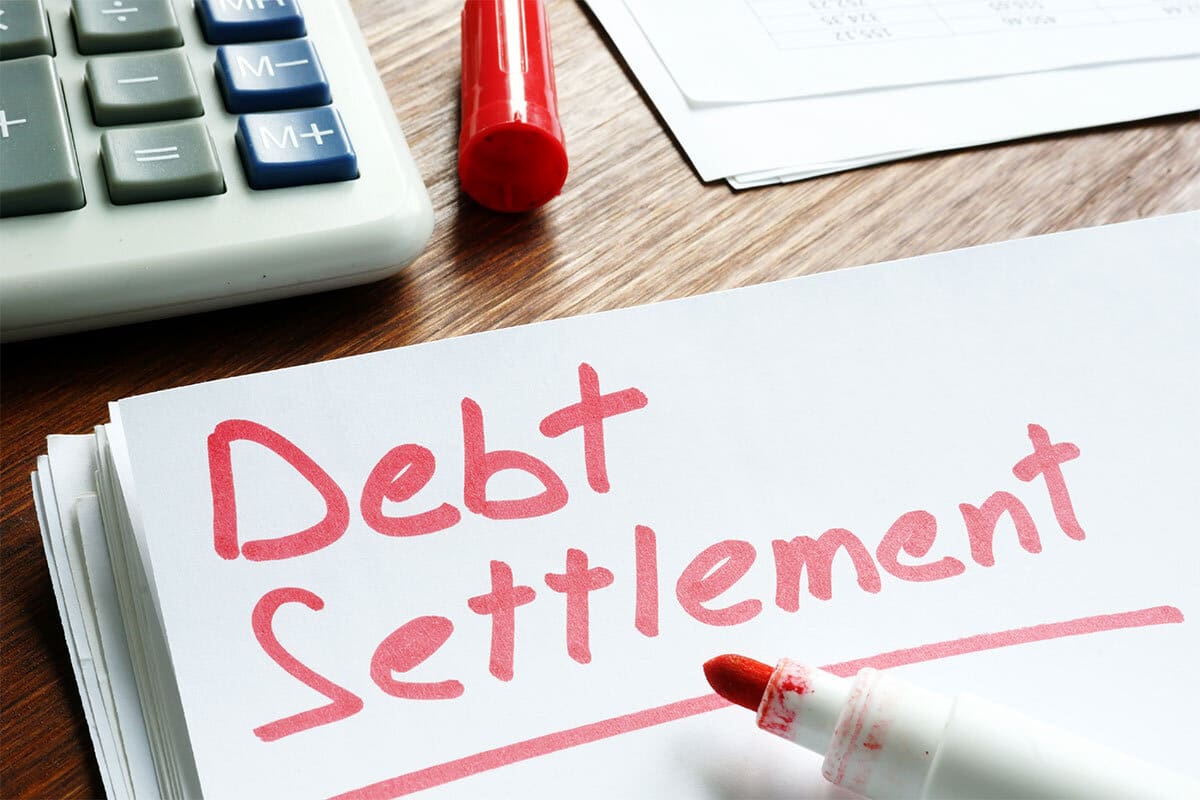Considering debt settlement negotiations can be stressful. Debt is indeed a serious obligation that affects your finances and life in general. This is especially true for those burdened with multiple debts that they already have a hard time paying back.
Folks who owe a huge pile of debts often turn to debt settlement to solve their financial problems. Most creditors will agree to a debt settlement because they don’t want their debtors to default on their loans or credit card balances. The good thing with this approach is that you’ll pay less than the amount you originally owe.
You can settle your debts with the help of a debt settlement company, or you can do it by yourself. Of course, opting for a DIY debt settlement requires a considerable amount of time and effort. Read this guide to know the ins and outs of a DIY debt settlement.
Do-it-Yourself Debt Settlement vs. Debt Settlement Company
Do-it-yourself debt settlement differs a great deal from settling your debts using a debt settlement company. If you opt for a DIY debt settlement, you get rid of the middleman, which saves you money on the service fees that you have to pay if you hire a debt negotiator.
The catch with settling your debts by yourself is that you have to do your research and learn the basics of negotiating a settlement. On the other hand, working with a debt settlement company can be convenient on your part because you’ll have less work to do. However, that convenience comes with risks and costs.
Working with a company doesn’t automatically mean that you’ll get the best settlement offer if you work with a debt negotiator. Moreover, there are chances that you’ll get charged more for the services of a debt settlement company.
While the financial industry is full of legitimate companies, it’s also attracted some illegitimate companies. The debt relief industry is one area these nefarious companies have taken a liking to. It’s important to do your research and due diligence to steer clear of these companies. At a high level, be cautious with companies saying things that are too good to be true and using high-pressure sales tactics.
If your goal is to settle your debts on your own terms and without having to pay exorbitant service fees to a debt negotiator, a DIY debt settlement is one of the best debt-relief options for you.
A Step-By-Step Guide to DIY Debt Settlement Negotiations
For you to dig into the nuts and bolts of a DIY debt settlement process, it’s important to follow the steps below.
Evaluate Your Financial Situation
Before you go for a debt settlement, you need to take stock of your financial situation first. List down the names of your creditors, the amount you owe to them, and how delayed or late you are with the payments. By taking your current financial situation into account, it will be easier for you to strategize a plan to settle your debts with your creditors.
Consider which account you have to negotiate and pay first if you have multiple debts. You can open a separate bank account where you can deposit cash to make a lump-sum payment or a shortened payment plan to your creditors.
Research Your Creditors
Policies on debt settlement vary from one creditor to another. That’s why you have to know what the rules your creditors have set regarding this matter.
Most creditors will agree to a debt settlement, while others won’t. If one of your creditors won’t accept a debt settlement offer, your only option is to wait until your debt is sold to a debt collector and then you negotiate with the latter.
Creditors also differ regarding the amount of the debt settlement offer. So, it’s really important to do your research and make inquiries. You can also ask other people who have settled their debts with the same creditors to inform yourself about how much you should offer.
Know Your Terms
Make sure that you know the debt settlement offer that you can afford. Don’t think that your creditors will agree to an offer that gives you a huge advantage (say, an unreasonable 60% reduction of the principal amount).
Figure out how much you can afford for the lump-sum payment or monthly payments and stick to that amount as you negotiate with your creditors. It’s also advised to propose to them to eliminate the late payment charges to reduce the amount you have to pay.
Create a Debt Settlement Fund
It’s a must that you create a debt settlement fund to pay your debt obligations. Typically, creditors will agree to a lump sum payment of approximately 20% to 50% of your original debt. You can also spread out the payment over a number of months, but this approach can increase the amount you have to pay.
Deposit cash into your debt settlement fund until you have sufficient money for your debt settlement proposal. And, avoid spending the money on other purposes.
Negotiate with Your Creditors
After you’ve saved sufficient money to settle your debt, it’s now time to contact your creditor and make an offer. Some common negotiating points are:
Lowering your interest rate
Reducing or eliminating any accumulated interest
Setting up a repayment plan
Waiving penalty fees
Forebearance or deferral
If your creditor has already given you an offer, you can either accept it or make a lower counteroffer.
You also have to discuss the reasons for the amount of your debt settlement offer. Creditors will listen to you if you’re currently struggling financially; hence, such debt settlement amount is what you can only afford. They more likely to negotiate if they see that the credit has been used for necessities rather than luxury goods.
There are some things that can sway lenders into negotiations. For example, showing a record of on-time payments and a good credit history. Offering a lump sum payment instead of a payment plan can also be effective.
Ensure that There’s a Written Agreement of the Deal
Make sure that the deal is written on paper before you proceed with paying the debt settlement. Read and understand the specifics of the written agreement. Take note of the payment amount, scheduled payments, and penalties before signing it.
Pay the Agreed-Upon Settlement Amount
After you’ve signed the agreement, it’s now time to make payments on your debt settlement. Once you’ve paid it in full, you’ll no longer have a problem with that debt obligation.
Debt settlement drawbacks
The debt settlement perks of saving money and getting out of debt come at a cost. It’s best to know what you’re getting into before moving forward.
- Many companies will require, as part of the debt settlement agreement, that the account be closed once the payments are done. Which means you will lose access to that credit.
- Some companies notify credit bureaus of debt settlements. If they do, the settlement will be noted on your credit report for seven years. This will affect your score.
- Lastly, some settlement agreements, like a lump sum payment, require having access to a lot of cash. Which isn’t a feasible scenario for everyone.
Alternatives to DIY Debt Settlement Negotiations
Besides do-it-yourself debt settlement, there are other options you can take to pay off your debts at a reduced amount than what you originally owe.
Debt Consolidation Loans
You can apply for a personal loan to pay off your multiple debts at a lower interest rate. This approach is called debt consolidation, and it’s one of the most common debt-relief options today. The good thing about this option is that it doesn’t hurt your credit score.
Debt Management Programs
It’s also a smart option to work with a credit counselling agency on how to manage and get rid of your debts. A credit counsellor can advise you on how to handle your debt obligations and offer you various solutions or programs to pay your debts off.
Takeaways
If you decide to do debt settlement negotiations by yourself, make sure that you know what you’re doing. Do your research on the basics of DIY debt settlement and learn how to negotiate and make a reasonable debt settlement offer. You can learn more about debt settlement on websites like debt.ca.









